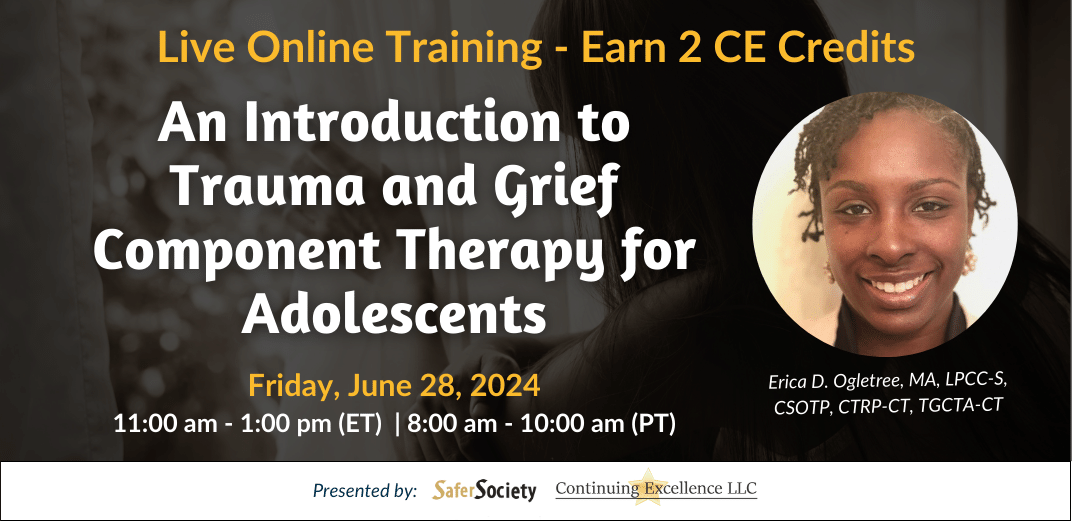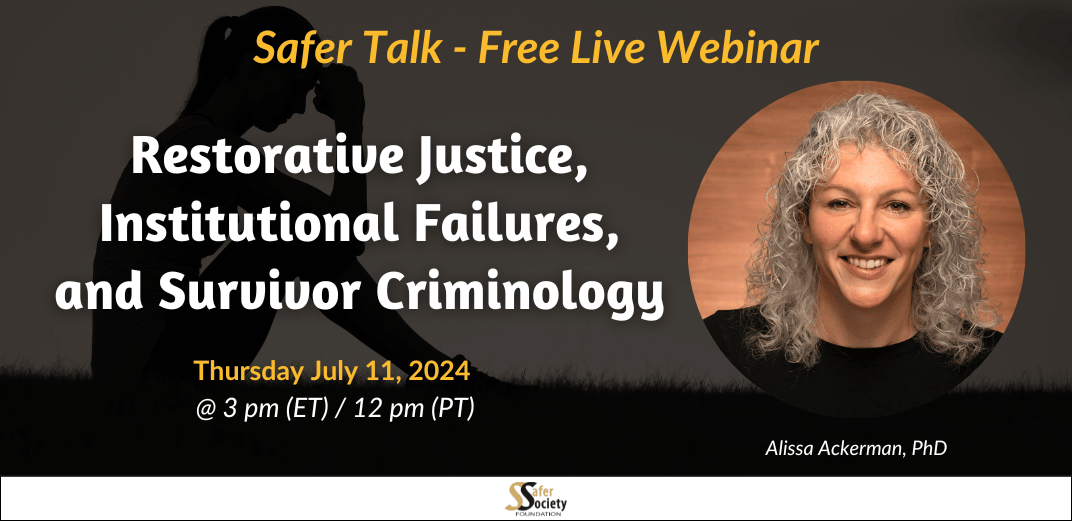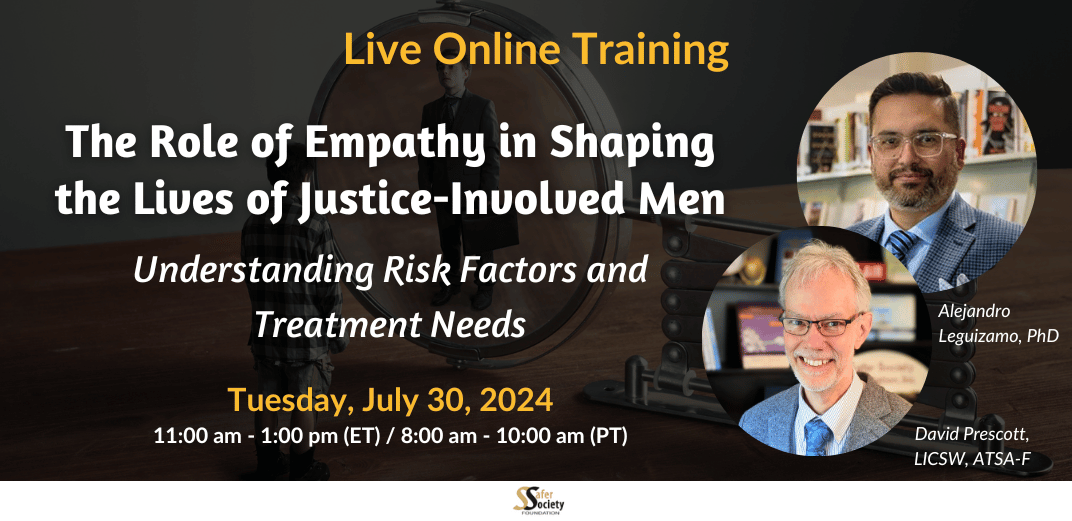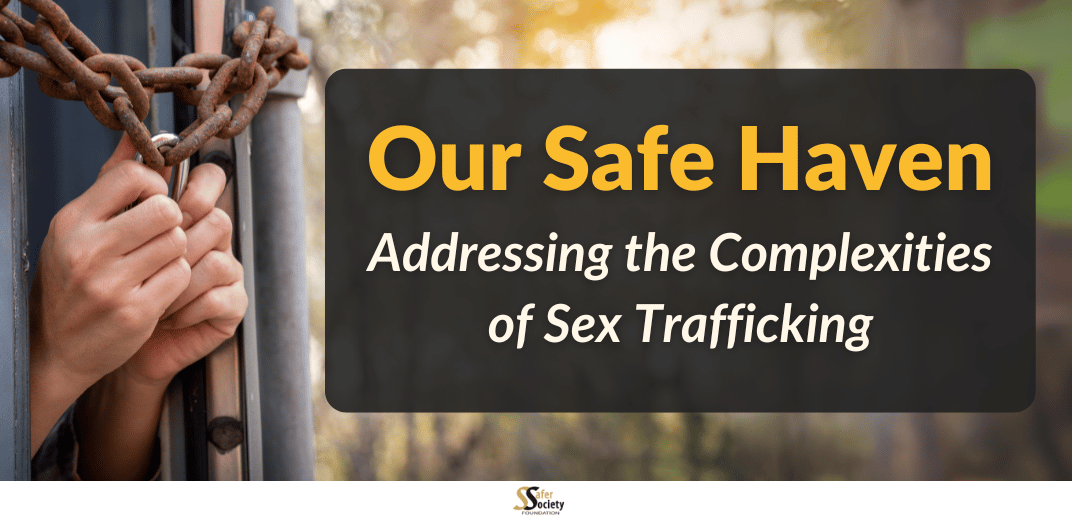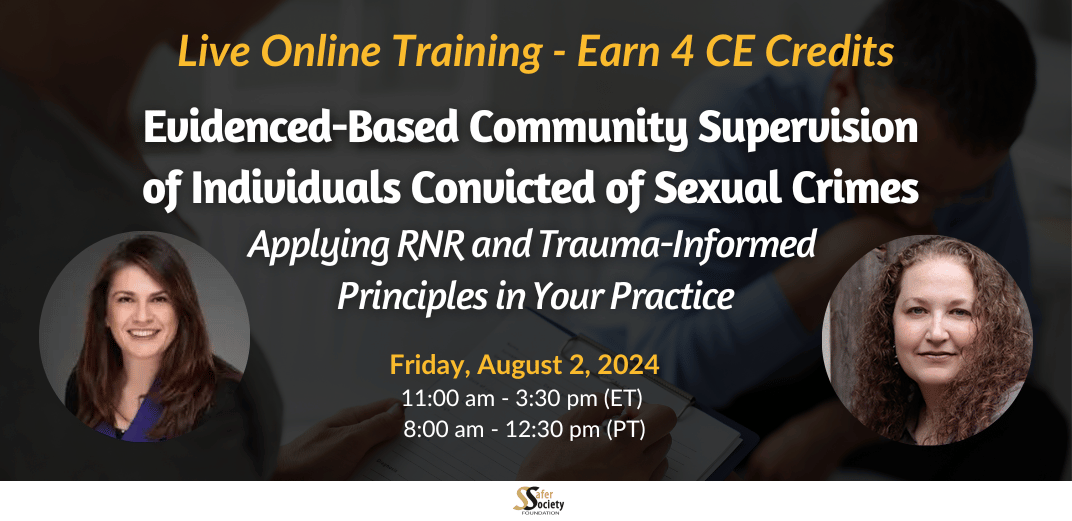An Introduction to Trauma and Grief Component Therapy for Adolescents
Trauma and Grief Component Therapy for Adolescents (TGCTA) is a four-module program designed to address trauma and grief in adolescents. It can be implemented in various settings, such as community mental health facilities, schools, clinics, and other service settings. This training covers the four modules of TGCTA, which address foundational knowledge and skills to enhance posttraumatic emotional, cognitive, and behavioral regulation, processing of trauma experiences, processing of grief/loss experiences, and the resumption of adaptive developmental progression and future orientation.
Presenter Erica Ogletree highlights the features of TGCTA that support its initial implementation and long-term sustainability. This includes detailed instructions with suggested scripts for each session, which is especially useful when there is clinician turnover. Additionally, the grief component in TGCTA aligns fully with the Diagnostic and Statistical Manual of Mental Disorders (5th ed.; DSM-5; American Psychiatric Association , 2013), and it is the only contemporary adolescent treatment that does so. Resistant youths in some settings appear more willing to engage fully with the grief than with the trauma component, thus opening other doors to recovery.

